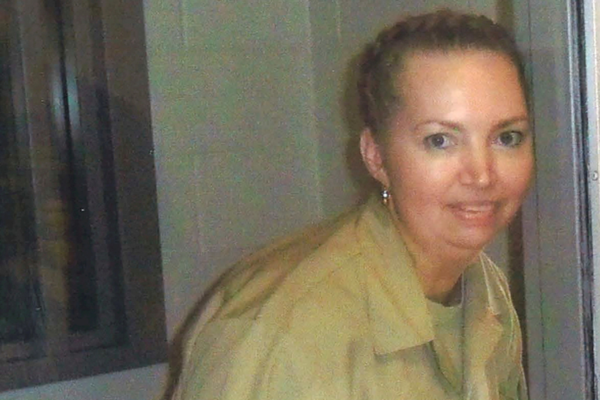In the early morning of Jan. 13, following a day of attempted legal delays and despite documentation of severe mental illness stemming from childhood abuse, 52-year-old Lisa Montgomery became the first woman in decades to be executed by the federal government.
According to her lawyers, in a “final insult,” Montgomery was not permitted to have access to her spiritual adviser in the room during the execution, which took place in Terre Haute, Ind., at the federal penitentiary responsible for carrying out the death penalty. "The craven bloodlust of a failed administration was on full display tonight,” said Kelley Henry, one of Montgomery’s attorneys, in a statement. “Everyone who participated in the execution of Lisa Montgomery should feel shame."
Faith leaders and political leaders are turning to the incoming Biden administration to discontinue the use of the death penalty in federal cases. While executions at the state level reached record lows in 2020, the opposite occurred at the federal level: The U.S. government executed 10 people in 2020; Montgomery’s death marks the first federal execution of 2021.
“In yet another after-midnight ruling, the U.S. Supreme Court has allowed the federal government to proceed with Lisa Montgomery’s execution immediately. This decision will forever be a scarlet letter for the SCOTUS — a complete failure to protect our most vulnerable citizens,” said Sr. Helen Prejean, death penalty abolition advocate, following the release of the news early Wednesday morning.
On Jan. 11, the Catholic Mobilizing Network announced a petition calling on President-elect Joe Biden to prioritize the abolition of the federal death penalty during his term. The petition also advocates for commuting the sentences of all 51 people on federal death row and advocating to end the death penalty on the state level. President-elect Biden has stated that he supports ending the federal death penalty.
That same day, Democrats in the House and Senate introduced legislation to do the same. Rep. Ayanna Pressley (D-Mass.), who introduced the bill in the House, told NPR she was urging Congress to act to immediately pass the bill. “State-sanctioned murder is not justice,” she said.
Montgomery’s was the first of three executions scheduled for the week before Biden takes office. A motion filed by Montgomery’s attorneys in Indiana District Court succeeded in temporarily staying the execution for a mental health evaluation, less than 24 hours before she was scheduled to be executed. But late Tuesday night, the U.S. Supreme Court overturned the stay and also denied another attempt to delay the execution from Montgomery’s lawyers, allowing the execution to move forward. Hours later, Montgomery was dead.
Corey Johnson and Dustin Higgs, who are both recovering from COVID-19 contracted while held at the federal prison complex in Terre Haute, which had an outbreak tied to Trump’s record-setting rash of executions, were scheduled to be executed this Thursday and Friday, respectively. However, Higgs’ and Johnson’s attorneys successfully argued for stays on the basis that COVID-19 will increase their suffering during lethal injection.
Faith leaders have consistently condemned the federal death penalty and its use under Trump.
“Jesus himself said that he did not come for the healthy, but for the sick. ... We may not have killed anyone, but that doesn’t give us the right to execute someone who has,” Christian activist Shane Claiborne wrote in Religion News Service on Jan. 11.
“It really reflects an antithesis to the evolution of Catholic moral teaching on the death penalty,” Prejean said in an interview with America Magazine on Jan. 11. Pointing to Montgomery’s execution, eight days before Biden comes into office, Prejean said, “It just shows how capricious the whole thing is.”
In 2004, Montgomery was charged with murdering a pregnant woman and stealing the fetus, a rare crime often tied to mental health issues. Montgomery suffered severe sexual and emotional abuse as a child at the hands of her parents, which, attorneys and mental health experts argue, was directly connected to her crime.
“Lisa Montgomery's case is an extreme version of a common pattern,” Justine van der Leun, a reporter focused on women and mass incarceration, wrote on Twitter. “The state was absent/futile during her life of trauma and torture. Then, untreated, mentally ill, she committed a horrific act. Suddenly, the state appeared, with every resource at its disposal, to punish her.”
“The incoming Biden administration can and must take concrete action to end the federal death penalty. Strong, mobilized, and persistent advocacy of people of faith can encourage that progress,” Krisanne Vaillancourt Murphy, executive director of CMN, said in a statement.
Got something to say about what you're reading? We value your feedback!






